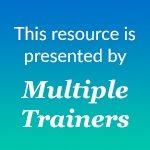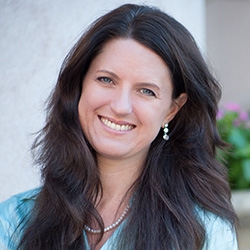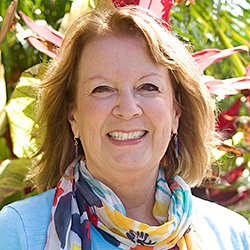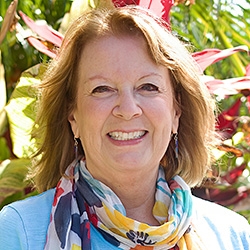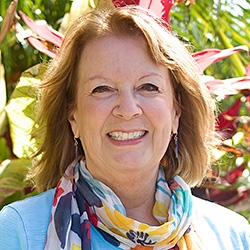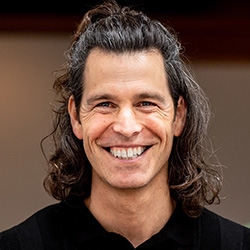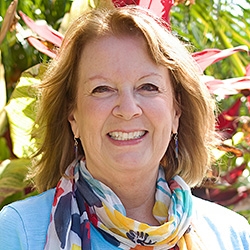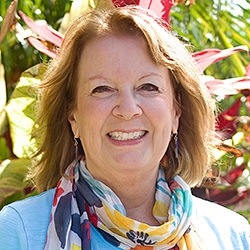

Search Results: relationships
-
Inbal offers parents and anyone with children in their life a lucid discussion of the important role self-empathy plays in creating healthy, supportive relationships.
-
Dear friends,
My book, Peaceful Living: Daily Meditations for Living with Love, Healing and Compassion has been on my mind a lot lately. It turns 20 years old next year, which I feel joyful about. Along the way, I came across this meditation that I wanted to share with you:
November 26
Change your thoughts and you change your world. – Norman Vincent PealeDeveloping Tolerance
I used to think that Chihuahuas were dumb dogs and bulldogs were ugly. Then one of my friends bought a longhaired Chihuahua named Tilly and another bought an English bulldog named Emma. Once I got to know these dogs and could see how truly sweet they are, it didn’t take long for me to fall in love with both of them.
-
How do our nervous systems sync during connection, and what happens when disconnection occurs? In this Sarah Peyton video, we explore the profound interdependence of human relationships through the lens of Nonviolent Communication (NVC).
-
-
- 3 full-length courses to deepen your empathy practice
- Learn your body’s “language” and how to listen deeply to it
- Quickly reconnect and return to empathic presence when you are triggered
- Enhance your listening skills and experience greater ease and joy in all your interactions
-
-
The purpose of boundaries is to prevent harm to yourself and others. You decide what you are available for and what you are not. Boundaries are a clear expression of limits that keep your heart open no matter what.
-
Why is it so difficult to change our patterns even when we want to, even when we experience shame or despair about them? Arnina Kashtan offers some of the common pitfalls and concrete steps to overcome them in the future.
-
Trainer Tip: Where do you focus most of your life? Are there areas that you could reassess? Are you happy? Engage a new paradigm shift in your life.
-
Trainer Tip: When you suspect someone is lying, consider how it may be less important what the truth is. Instead, notice whether your need for trust is met. Without blame, nor labelling. you can make specific requests to meet your needs, while also respecting the other person’s needs. Read on for more.
-
Trainer Tip: We may communicate indirectly when we worry about hurting someone’s feelings. Instead, commit to being direct with compassion, love, honesty, and respect to both yourself and others. They may not enjoy what you say, but at least they'll know where you're coming from. Being true to yourself, you can be true to your relationships. And it can build trust.
-
- Deepen your capacity for self-acceptance and self-compassion
- Bring greater compassion to your relationships
- Increase your capacity for vulnerability and mourning
- Enhance your sense of trusting your own place in life, as well as your purpose
-
- Easier and steadier access to presence, awareness and self-connection in relationships and challenging situations
- Illumination of basic Buddhist and NVC principles
- A deeper understanding of how to live the Buddhist precepts of non-harming, mindful speech and deep listening
- An introduction to useful tools for families and communities to create a culture of Nonviolent Communication
-
The heart of the practice of nonviolence is a commitment to live through the powerful combination of compassion, fierceness, and courage, with an uncompromising willingness to stand for truth. Join Miki Kashtan for this exciting and informative course to learn how to practically embrace nonviolence.
-
- Welcome unpleasant feelings and meet their flow in and around the body
- Discover how you can enjoy Anger as a beautiful life force
- Realize insecurity and depression as a door to the core of your humanity
- Know how to use fear to firmly connect to your life and strength
-
Trainer Tip: One of the swiftest ways to close our hearts is having judgmental thinking or looking to get our way. How open are you when you're in this mode? The goal in peaceful living is to approach our relationships with an open heart. Start conversations today with an intention to connect with other people.
-
Total inclusion is impossible: inclusion of all can often lead to exclusion of those who can't bear the behaviors of some. Many groups flounder and disintegrate because of too much inclusion. Limited resources and capacities may make it necessary to exclude. Keeping more coherent shared values and strategies may be another reason to place membership conditions so that what appears to be exclusion may give movements a chance to expand.
-
- Explore what makes the capacity lens radical and practical
- Understand the complexities of how capacity and willingness interface
- Mourn capacity limits within and around us without jumping to conclusions
- Orient to agreements as behavioral anchoring in support of your commitments
-
Trainer Tip: While everyone's feelings are a result of their own met or unmet needs it's still important that we take responsibility for our actions. This means acknowledging when our behaviors are a stimulus for another's pain, and expressing regret -- to support our own needs for care and consideration. In the process, taking responsibility where it's due in this way can enhance and deepen our relationships.
-
- Learn how every decision we make perpetuates the status quo or brings us closer to the vision of a world that works for all
- Find out about our big brain capacity to integrate needs, impacts, and resources to make decisions that work for everyone
- Understand why power differences interfere with collaborative decisions and what can be done about it
- Discover tools that support collaboration in larger groups and organizations— even across power differences!

Quick Links
Subscription Preferences
Stay In Touch!
Looking for ways to keep up with NVC Academy news, get special offers, free resources, or words of inspiration? Here are five ways to stay engaged:







